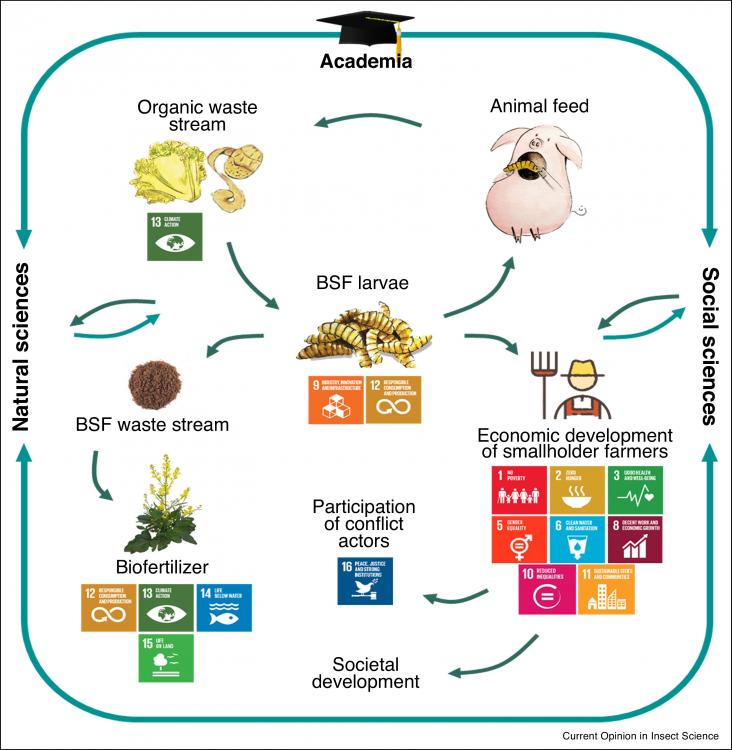Introduction: This study investigates staff's perspectives on the characteristics required to work in a sexual assault referral centre and the support and training they believe sexual assault referral

Insects such as the black soldier fly (BSF) are a nutritious feed component for livestock with high protein levels. BSF can be reared on a wide range of organic residual streams.
The new 2030 sustainable development agenda is likely to dominate policy and academic debates at both national and international levels over next 15 years and beyond.
Recent research and policies recognize the importance of environmental defenders for global sustainability and emphasize their need for protection against violence and repression.
This chapter addresses SDG10 and SDG16 by conceptualizing stereotyping, prejudice, and discrimination in the context of people using them as tools to manage social opportunities and threats, enhancing understanding of how and why stereotypes develop.
Purpose and setting: Infrastructure is a global multi-trillion dollar market presenting many opportunities and risks for sustainable development.
This chapter addresses SDG5, SDG10, and SDG16 by critically examining the concept of social essentialism and its adverse consequences for justice and equality, particularly around issues of race and gender.
Estimates by the World Health Organization indicate that 1 in 3 women—more than one billion people worldwide—have experienced some form of Gender-Based Violence (GBV).
Background: There is a general lack of recommendations for and basic information tailored at sexologists and other health-care professionals for when they encounter trans people in their practice.
Introduction: Clitoral reconstruction (CR) is a controversial surgical procedure performed for women who have undergone medically unnecessary, often ritualistic genital cutting involving the clitoris.
